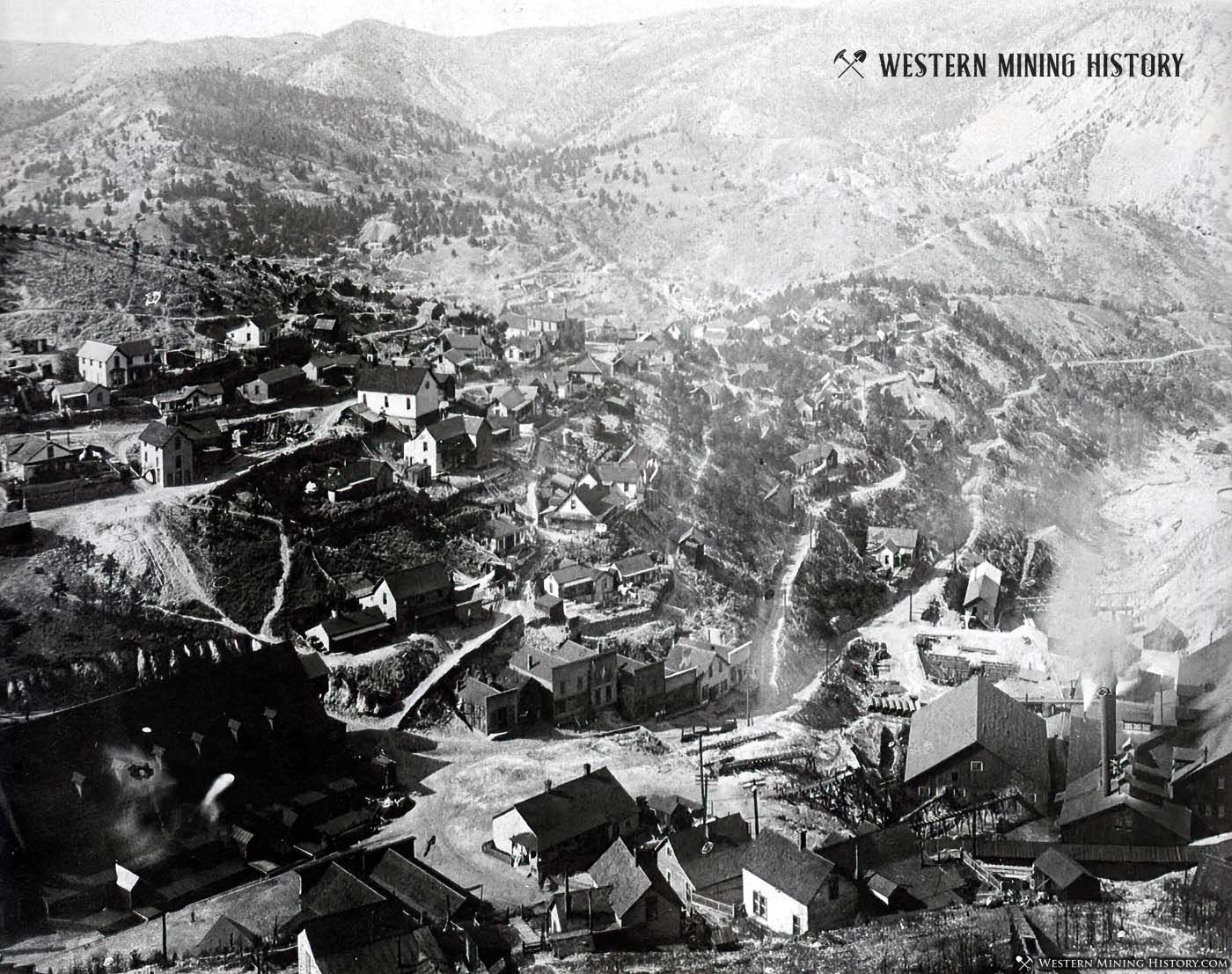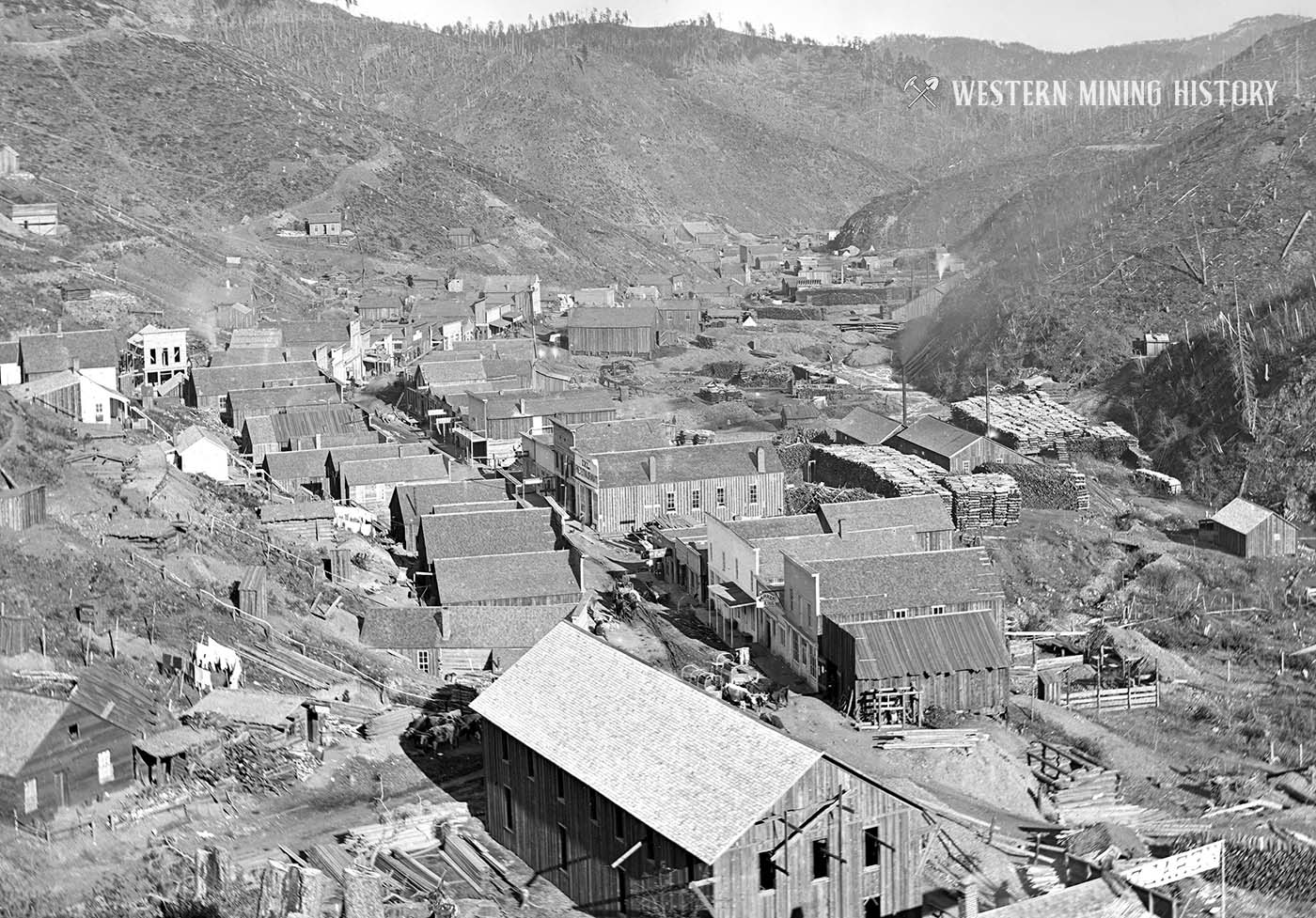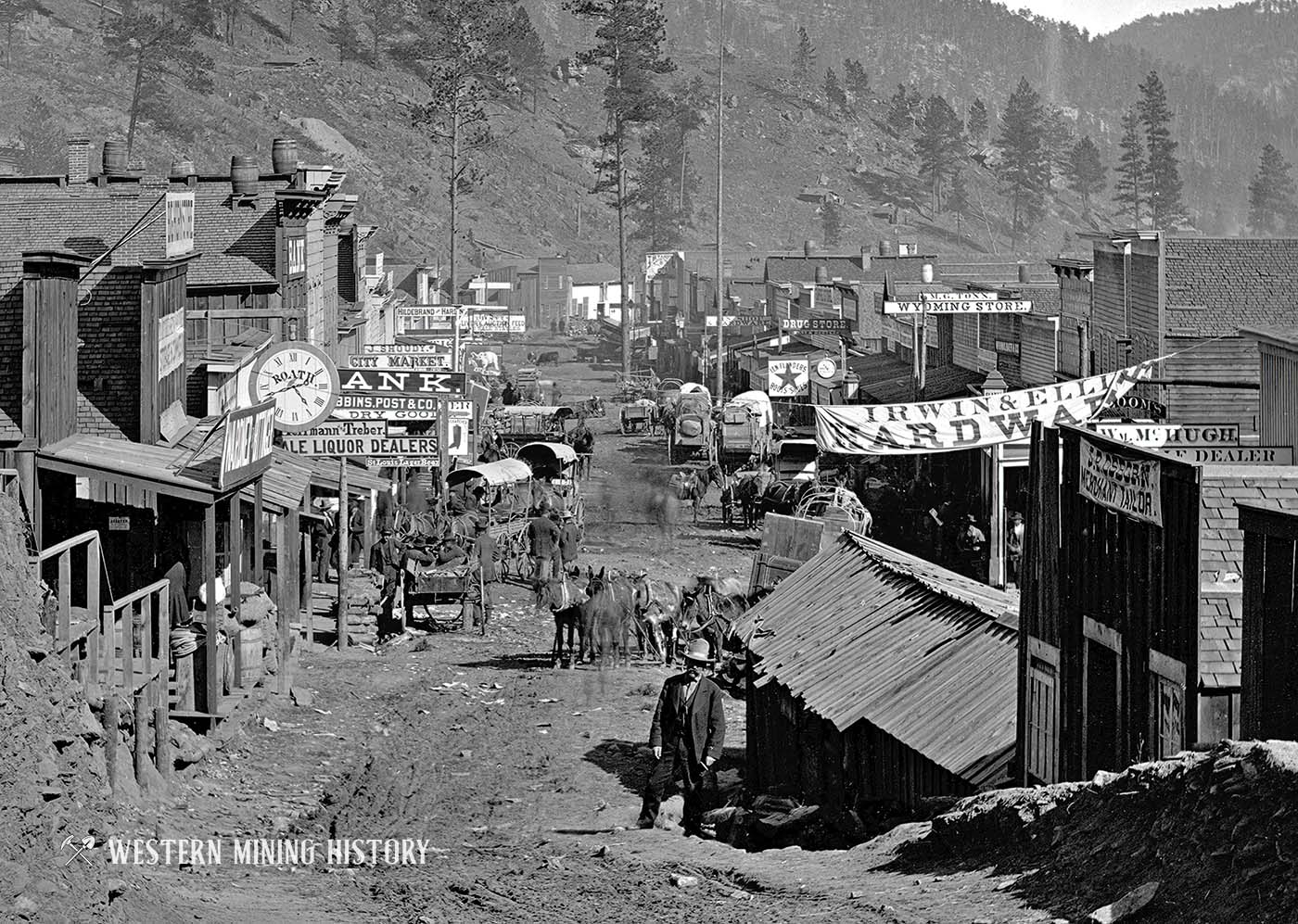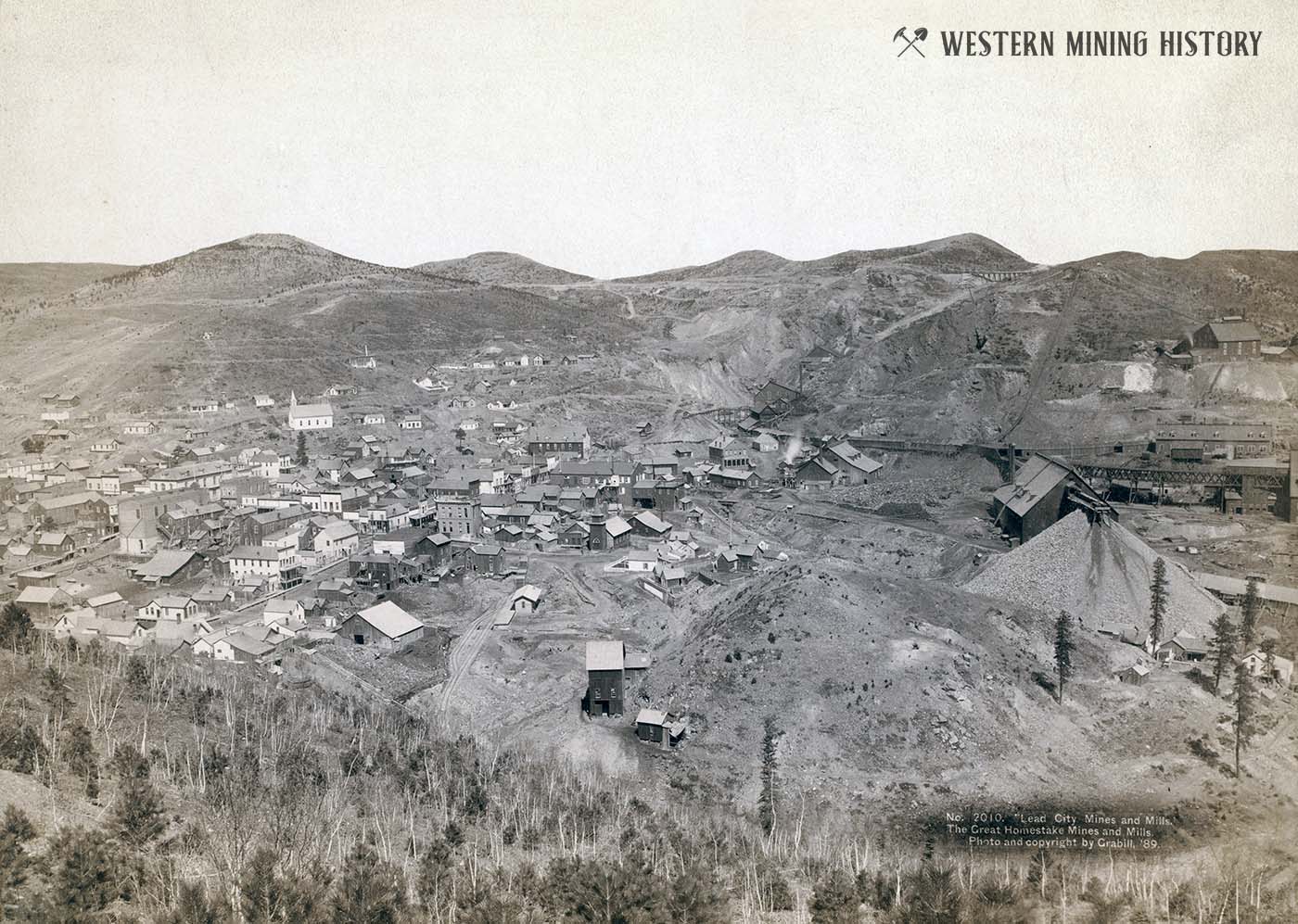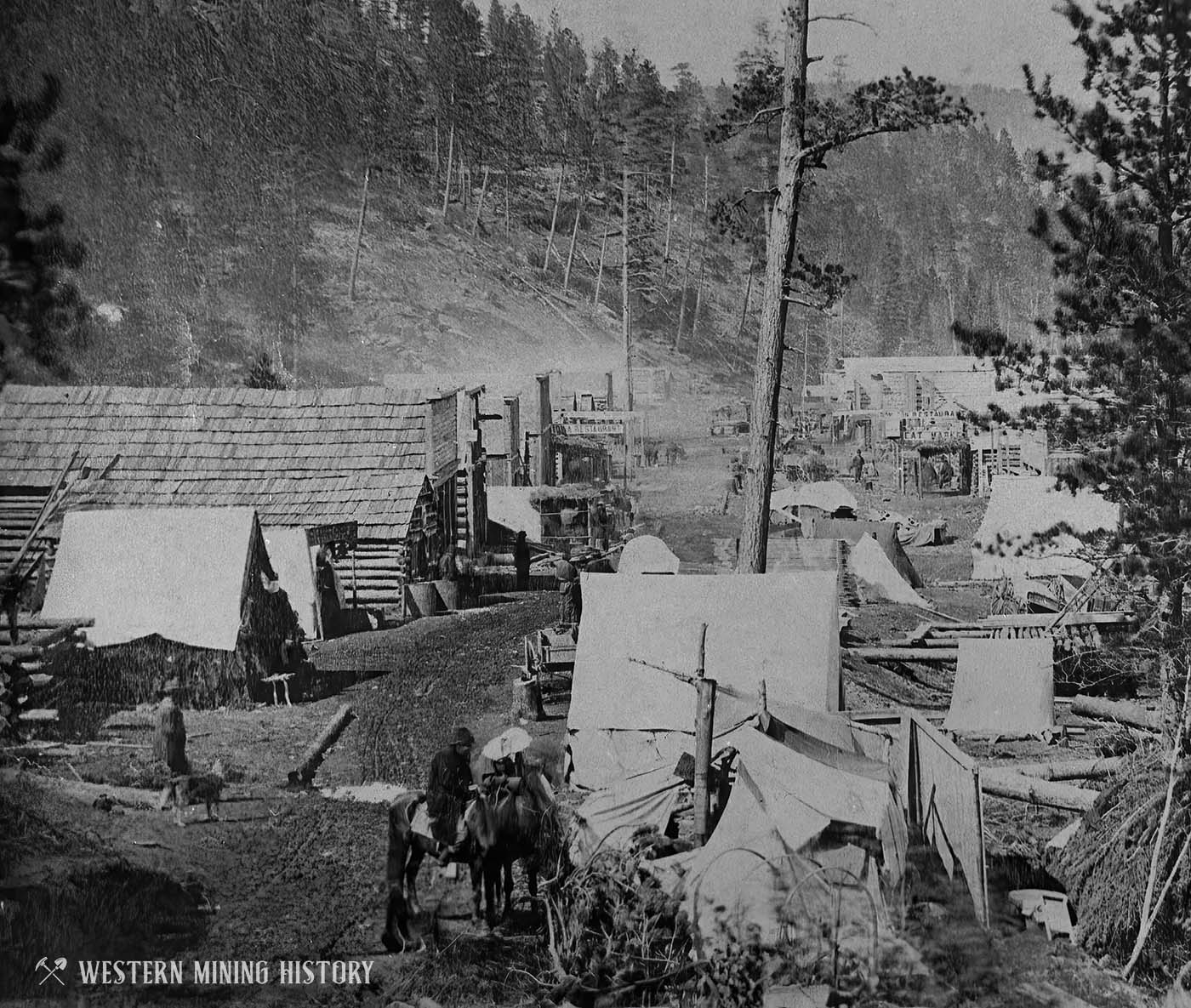Terraville History
Terraville was named after the Golden Terra mine - one of the first lode mines located in the area. The Golden Terra was later absorbed by the ever-expanding operations of the Homestake Mine. Terraville was the original location of the Homestake company headquarters, before later relocating to nearby Lead.
By 1880 lode mining was surpassing placer mining in the district, and Terraville became a formal community with a post office, a school, and numerous homes. With over 700 residents, this was the third largest town in the district. Terraville had a small commercial district, but residents largely relied on the businesses that resided in nearby towns like Lead and Central city.
Terraville was built high on a mountain between Lead and Central City, as shown in the following image.
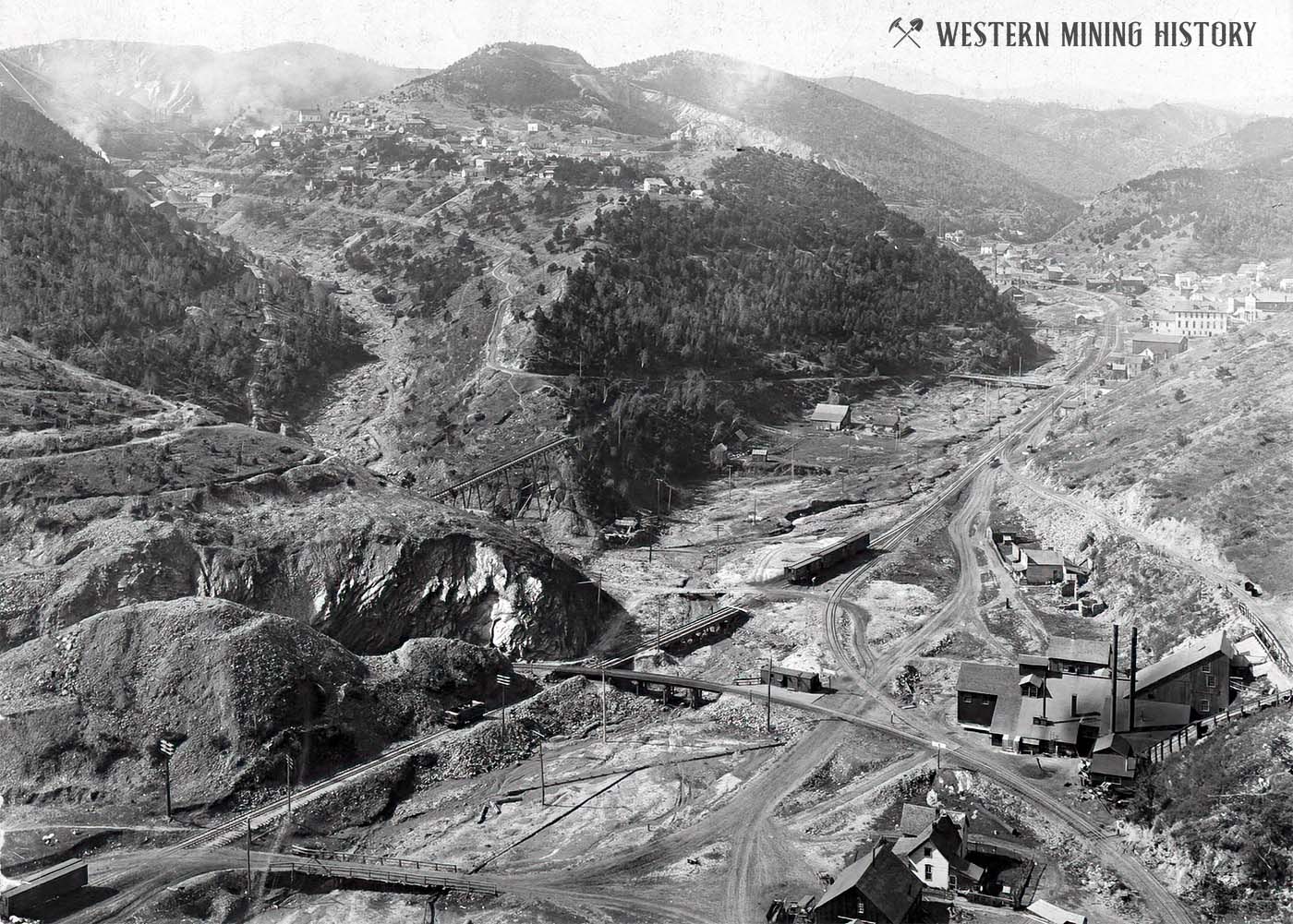
Looking closer at the image above reveals the town of Terraville and the stamp mills that made it famous. It is said that a flight of stairs with 280 steps connected Terraville with Central City in the gulch below.
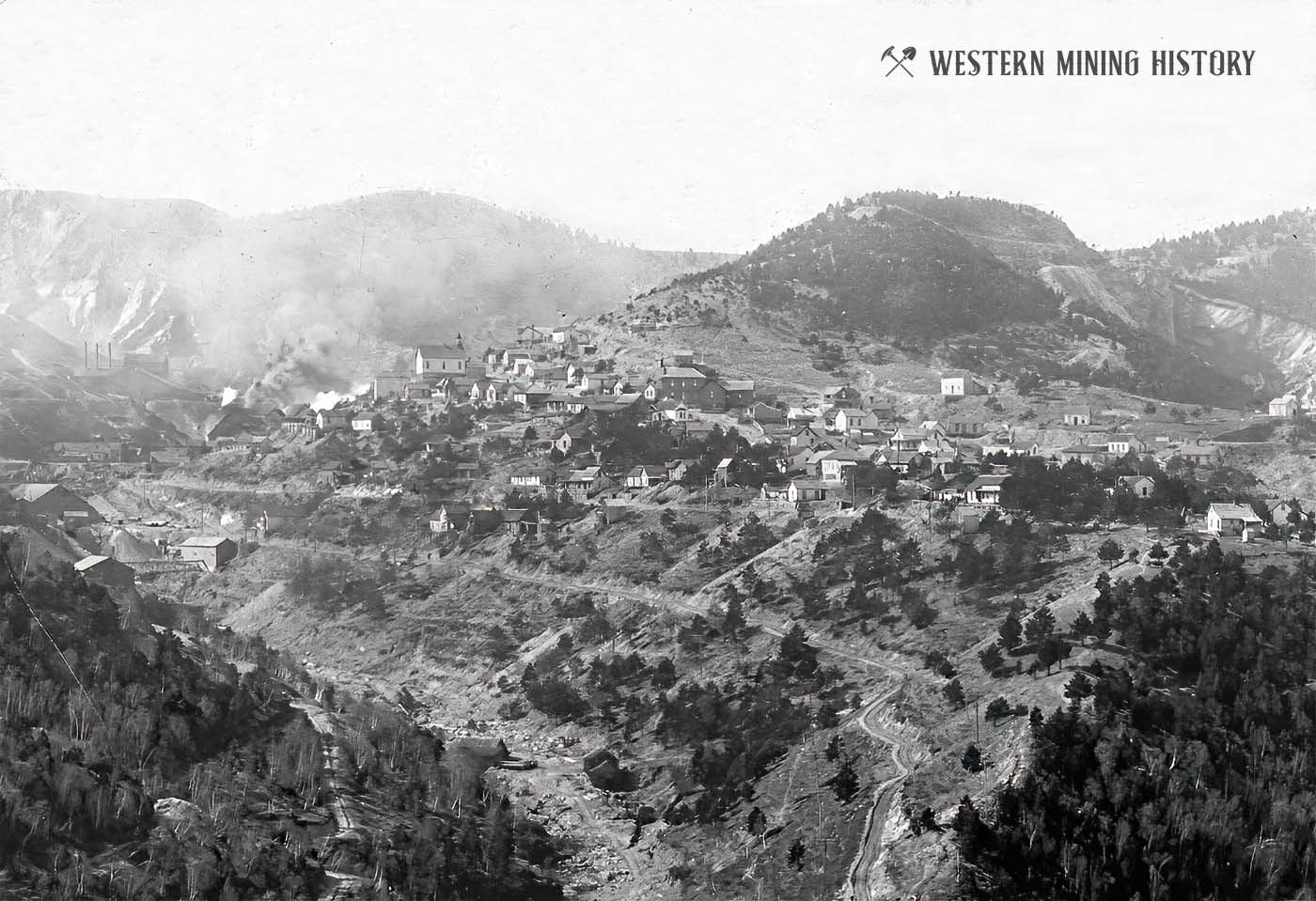
A tunnel nearly a mile long connected Terraville with Lead. The purpose of the tunnel was to haul ore to the mills at Lead, but residents used it as a shortcut when traveling by foot between the towns. In the photo below, two brave women and a child pose at the tunnel before walking through it.
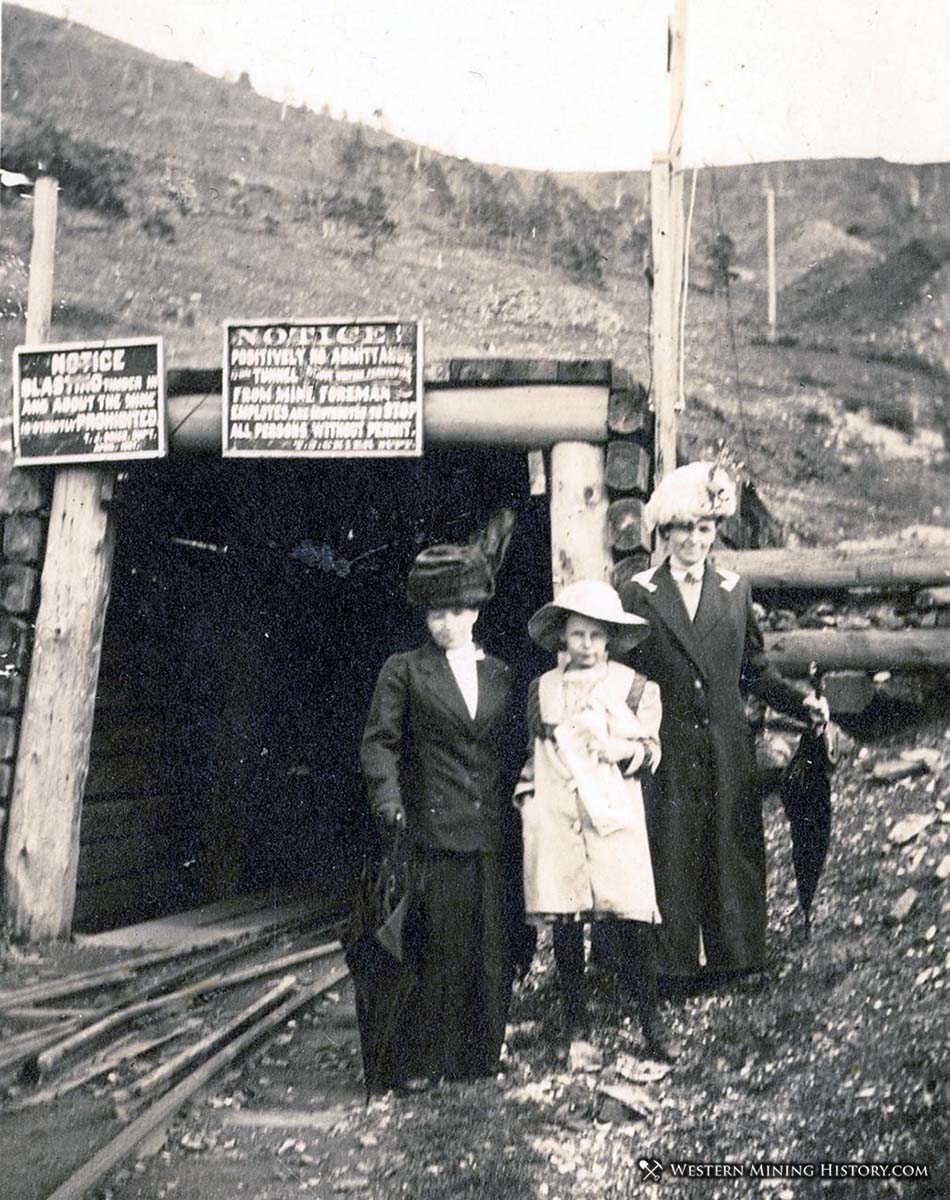
A March 1890 edition of The Black Hills Daily Times reported on an upgrade to one of the mills: "The new Deadwood Terra mill, 160 stamps, is the largest in the world with the exception of one of 240 stamps on the Treadwell, in Alaska. The latter however, reduces a less number of tons of ore daily than does the Deadwood Terra - about 700 tons."
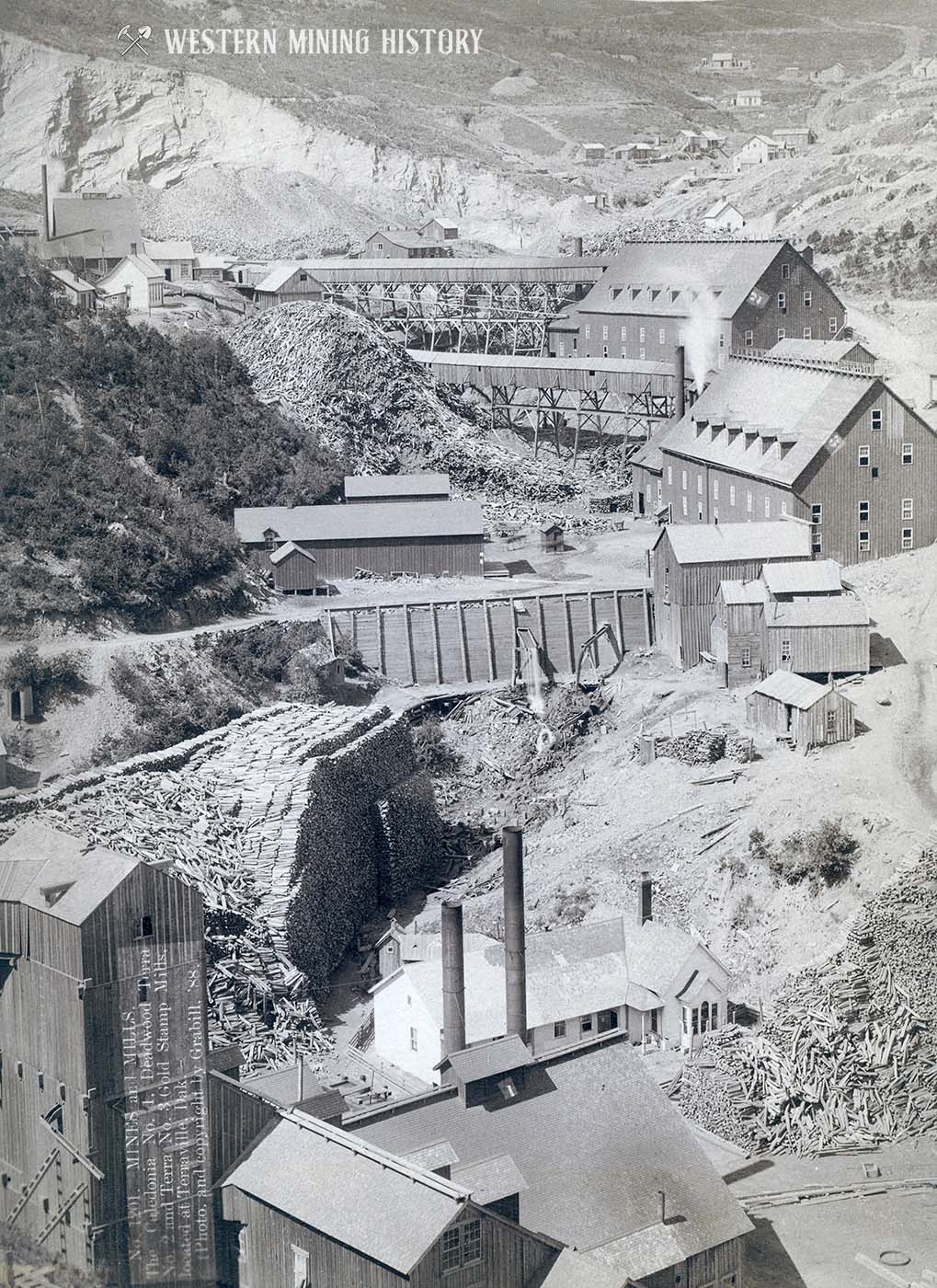
Terraville peaked in the 1890s as milling became an enormous local industry. The Homestake company came to own all the mills shown in the photo above, and at their peak 700 stamps were crushing ore for the Homestake Mine. By 1900 the population had dropped to 635, which included a significant number of laborers from Finland.
Despite the drop in population, combined milling capacity at Terraville peaked in 1901, with 900 stamps crushing ore.
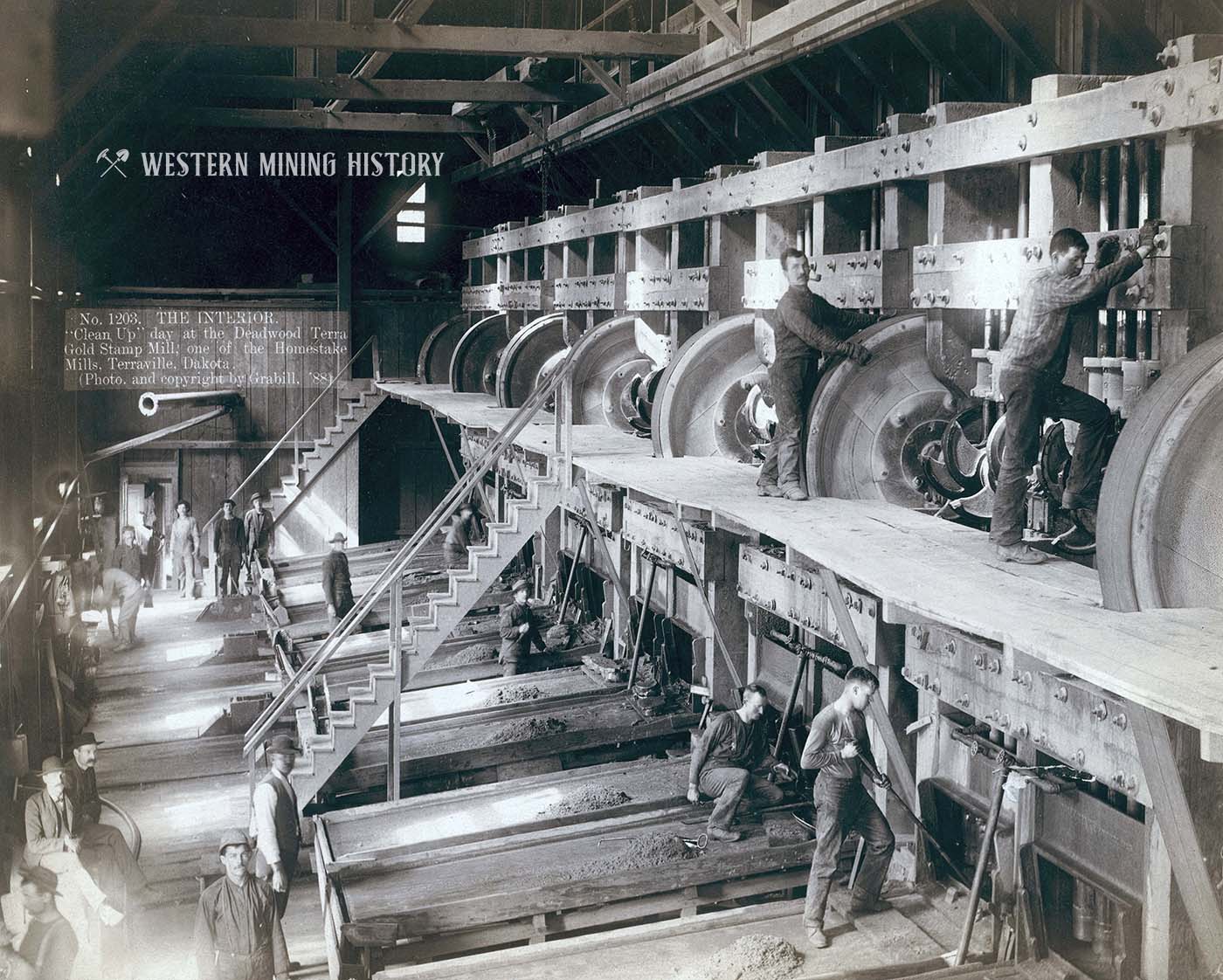
Eventually the mills closed, with milling capacity for the Homestake Mine consolidated primarily in Lead, where the main part of the mine was located. Terraville remained a small community of a couple hundred people, primarily employees of the Homestake, until the early 1980s when the open cut consumed the town.
Terraville's post office operated 1880-1985.
Nearby Mining Towns
These are a selection of notable mining towns near Terry.
Central City
Central City, South Dakota was one of the Black Hills earliest, and most important mining settlements. In 1877, a conflict between the neighboring Aurora and Keets mines resulted in the death of one of the mine owners, and later the same year a strike at the Keets required intervention by Sheriff Seth Bullock and federal troops.
Deadwood
Deadwood, South Dakota is one of the West's most historically significant mining cities, and the location of some of the Wild West's most notable events. Deadwood has seen extensive preservation of its historical buildings, and is a popular tourist center.
Lead
Lead, South Dakota is the location of the Homestake - the nation's greatest gold mine. This mine operated for 125 years and produced over 40 million ounces of gold. As the mine grew, so did Lead, becoming one of the West's most important mining cities.
Mining in the Black Hills
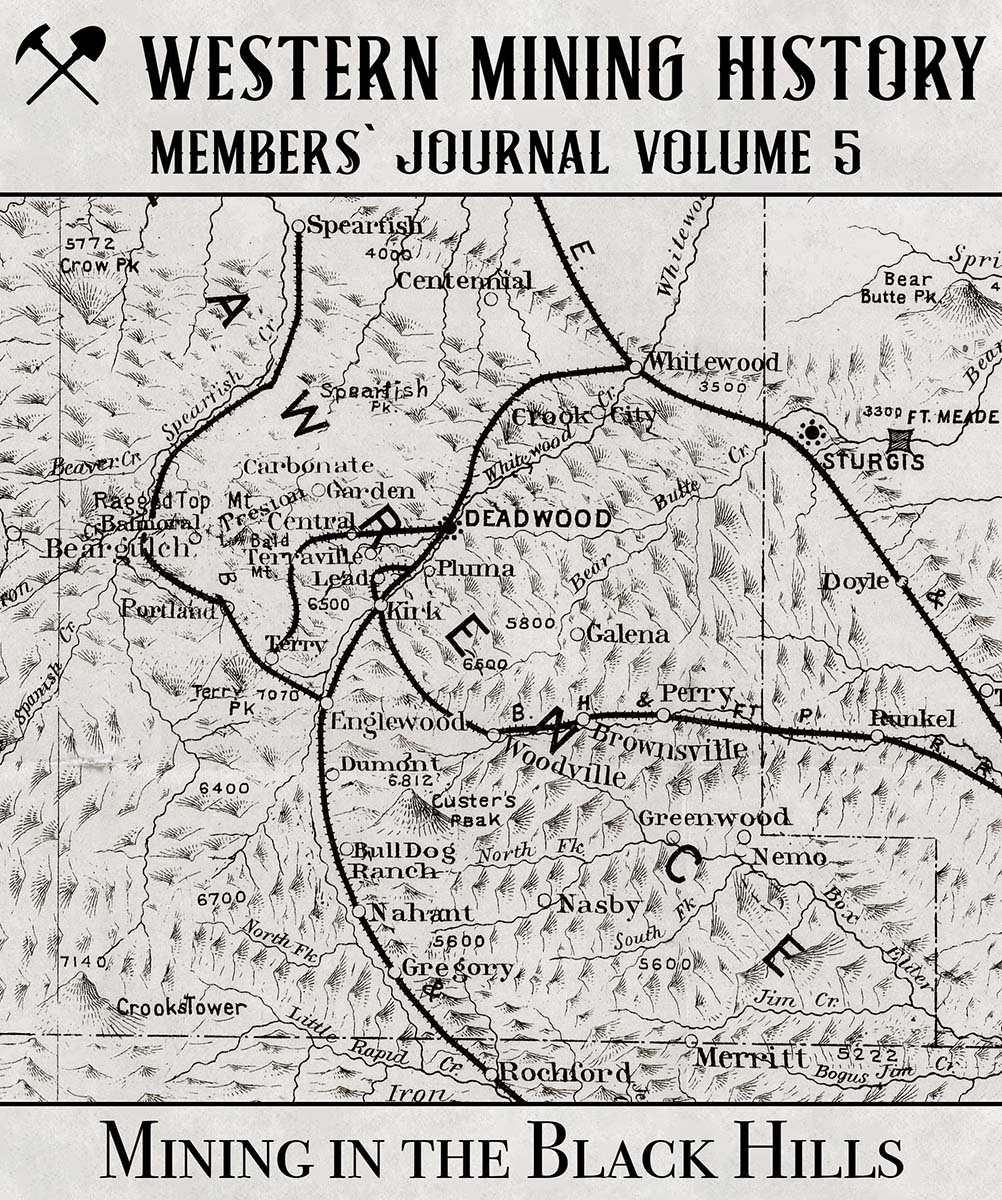
Western Mining History Member's Journal Volume 5: "Mining in the Black Hills", takes a closer look at the distribution of mining districts and towns the Black Hills of South Dakota.
Deadwood: The Ultimate Photo Collection
The Black Hills Gold Rush was one of the most significant historical events in the western United States. Deadwood: The Ultimate Photo Collection contains over 50 images capturing the early history of this famous gold region.
